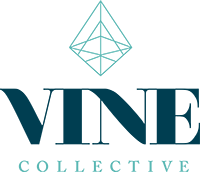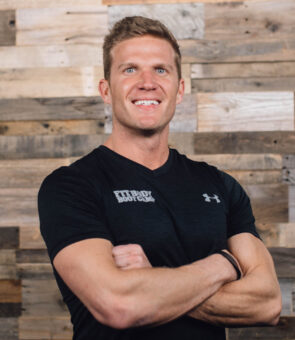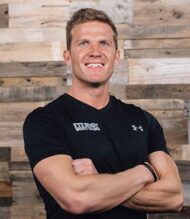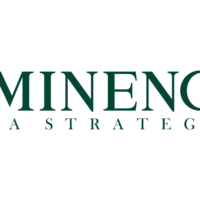Posted on June 19, 2023
Embrace the power of a fit body and a fit mind, for within their harmonious union lies the key to unlocking our limitless potential. By cultivating both physical fitness and mental toughness, we unlock a path toward greater self-realization, conquering challenges, and embracing a life of vigor, intention, and endless opportunities. Today’s episode features Bryce Henson, the remarkable CEO of Fit Body Bootcamp, a fitness boot camp franchise that is taking the world by storm. Bryce shares his incredible journey, tracing his evolution from a fitness enthusiast to a visionary CEO who’s making a global impact. He explores the transformative power of fitness, not only for the body but also for the mind. Moreover, Bryce unveils the secrets behind his coaching methodology, revealing the lessons he’s learned and the challenges he’s conquered to create a fitness empire that is revolutionizing the industry. Get ready to transform your life as we delve into the world of fitness, entrepreneurship, and personal growth.
—
Listen to the podcast here
Building A Fit Body And Fit Mind: Unlocking Your Potential With Bryce Henson
In this episode, our guest is Bryce Henson, CEO of Fit Body Boot Camp, the world’s fastest-growing fitness boot camp franchise. Having nearly twenty years of fitness business experience and owning his Fit Body location, his passion is in spreading fitness to the world through business coaching. Through Fit Body Boot Camp’s worldwide growth, Bryce has overseen hundreds of gyms successfully launched throughout North America. Most importantly, he helps his franchise partners grow their profits while helping to offset the obesity epidemic. Bryce enjoys world travel and is a fitness expert, coach, author and inspirational leader that is here to talk to us. Thank you so much for joining us, Bryce.
Steph, thank you so much. I appreciate you having me on. I’m excited to chat.
Me too. You have so much to share with us but we’re going to start with you telling us a little bit about how you got to where you are. What’s your origin story?
I’ll jump in. Most times, I give the origin story of my fitness background. You can prod me along. We were talking off-camera and one of the calls to action we both aligned on was to be open and vulnerable to show a little bit of messy background but some big takeaways as well. I grew up in the Midwest but for the first ten years, I grew up in the Southeast in Atlanta, Georgia.
I come from a “broken home,” which probably many of your audience can relate to. Specifically, my father was a drug addict. He was an alcoholic and also addicted to gambling. It’s not the trifecta for a good family upbringing as you would imagine. That carried a lot of weight. My early childhood was volatile, especially when my dad would come home, lose a lot of money and create a lot of chaos with drunken rage. It was very challenging but the story goes. Things were getting out of hand from my mom’s perspective.
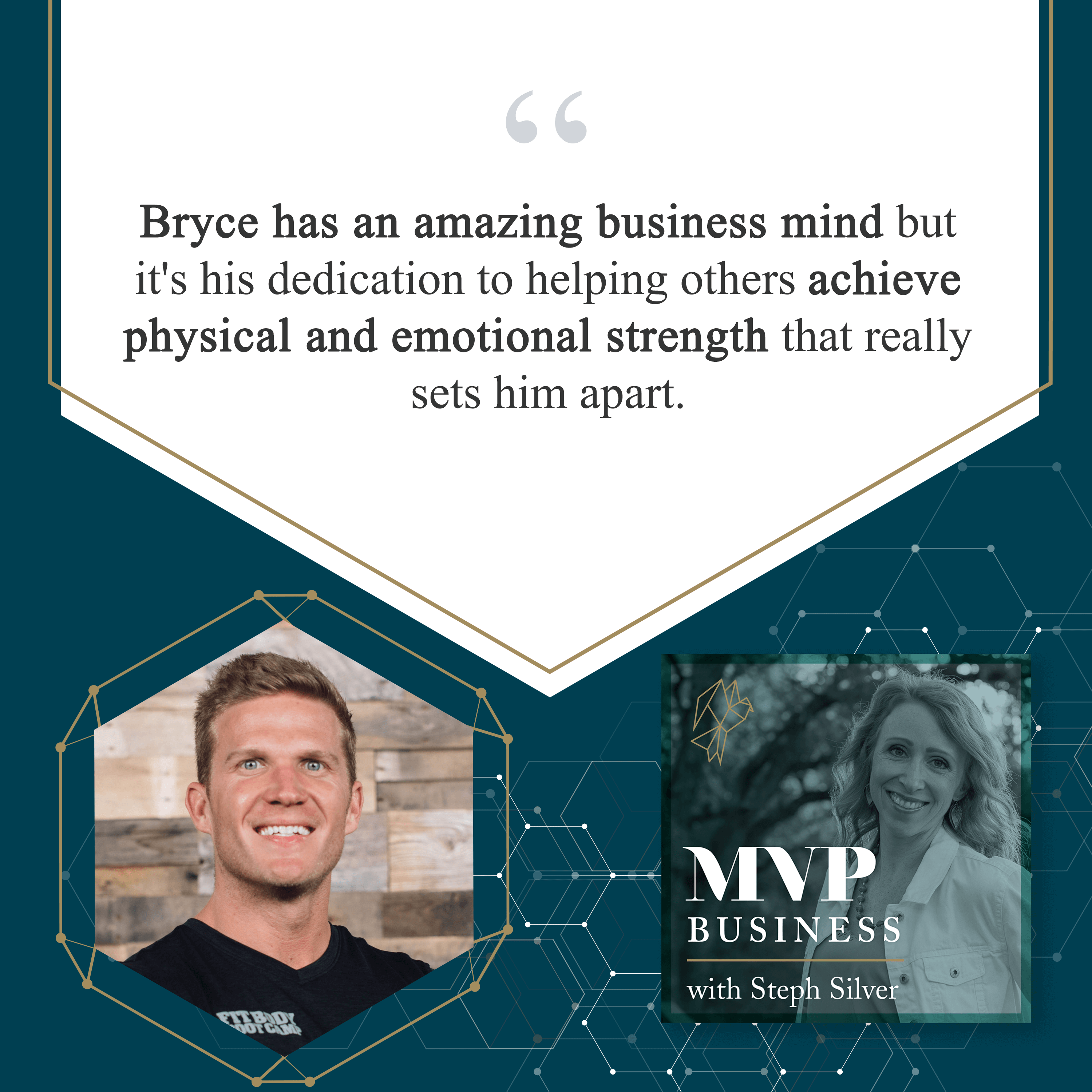
We were young at the time. I was about 8 or 9 years old but I could sense the arguments were getting a little bit more vocal and challenging. There’s a lot of friction in the household. After a long weekend, my dad was out gambling thousands of dollars, which was a lot of money for us at the time. He came back not in a sober state, which was unfortunately common at that point. My mother shared a few choice words, not happy with his behavior for a good reason. A verbal argument broke out but this one was a bit different.
Before you knew it, my mom found herself on the bed being strangled, gasping for air and struggling for her life but by the grace of God, my little sister walked through the room. My dad was distracted. Mom’s knees hit the bed. She ran out of that room like a bat out of hell and grabbed my sister and us boys and off we went. That’s when my life changed. While that was a “tragedy,” I call it a blessing disguised as a tragedy because it got us into a much better situation.
Thankfully, my grandma lived in the state of Michigan. We lived with her for the better part of ten years while my mom did the best that she possibly could. She had been out of the workforce for about fifteen years. She didn’t have a lot of professional skills. Granted, the cost of living is much less expensive in the state of Michigan and the Midwest in general than it is out in California where she resides.
Being a secretary, making minimum wage and raising three kids was tough. We used to run out of money before we used to run a month but I share this with you because there are a lot of great takeaways in terms of relationships, valuing family dynamics and understanding hard work and the value of work ethic that I learned at a young age, watching my mom struggle and try to do her best that she could.
At a very young age, it made me realize the importance of self-sustainability and a strong work ethic. No one is coming to save you. You must save yourself. I took the mentality, “It has to be. It’s up to me.” That’s served me well. That was the foundation of my entrepreneurial journey that I learned at a young age. That was my origin story. I’m happy to color in the details of my fitness endeavors as well.
Self-sustainability is important. No one's coming to save you, you must save yourself. Click To TweetBridge that gap in a little bit. I have one question about the mindset of your origin story. I started working when I was eight years old for similar reasons to everything you described. One of the things I’ve only discovered is that starting at the age of eight years old, I realized that I was going to have to work ten times harder to get to a baseline of where I thought everybody else was in their average middle class, not meeting the end of the month bills or your standard lower-middle class.
I would have to work so much harder to get to that place. I was sprinting the entire time to do everything. When I finally got to college, it took 21 hours while working triple shifts. I felt like I had to do ten times as much as everyone else and I did. I got there, did all the things, kept working at that pace and worked my way from sales to vice president in an agency.
The reason that I’m bringing that up is I wonder if you have an experience similar to mine of realizing, “Now that you have hit this level of success, you can breathe.” You have to tell yourself, “You don’t have to go that hard anymore. You don’t have to fight or sprint. You can also slow down and enjoy the view because it’s a very different life once you get there.” Have you experienced that at all?
That is so interesting. It’s a struggle that I work through. We are speaking the same language. For your story starting to work at 8, for me, it was 11. In the state of Michigan, you have to be fourteen legally to file for a part-time job or whatever the case may be but you can referee or officiate soccer games when you’re twelve. You can enroll in officiating school when you’re eleven.
The disruption that happened in my household brought awareness, “We have a lack of resources. I must get resourceful and help out with that particular endeavor.” Our stories are very similar there. It’s interesting. I usually don’t share this piece but I had to work double or triple as hard to stay equilibrium. It was challenging at the moment but it taught me so much value in terms of interpersonal communication and work ethic.
There was a lot of value there. To bring it forward to the present day, that’s something I still struggle with. It has been an advantage when you look at my success but it also doesn’t leave me overly peaceful or Zen. To answer your direct question, it’s something I’m still working through to realize, “You can take a deep breath. You can breathe.” That’s my particular perspective at the moment.
Thank you for saying that. The first time I got a business coach, his first assignment to me was to take time for myself. I laughed at him. I’m like, “You’re serious.” I wanted to bring that up because of my life experience. A lot of people see self-made people and think that they’re brilliant and automatically got a lucky break or something like that but it is that catalyst moment where you said, “I’m going to have to work my tail off and then the challenge that it presents later on.” I’m in the space of trying to find balance because my body feels like I need to sprint but I want to garden and be with my kids. I’m pulling back and forth between the two identities as if it’s a choice instead of interweaving them together.
I’m hoping your audience is getting a ton of value. Selfishly, that is so much acknowledgment. You’re providing visibility to your story. We’re kindred spirits. I feel the same thing. Thank you so much for sharing that.
Thank you. You were into sports and fitness for your first job. Was it umping and repping? How did you get into owning your first business?
I was excited or at least passionate about sports and athletics but I would not say that I was ever exposed to the gym environment, working out or even clean nutrition specifically for two major reasons. Number one, my family comes from humble beginnings for first-world standards. We used to run out of money before we used to run out of a month. Typically, fast food at least short-term is a more affordable option. Long-term, it has significant consequences but typically, fast food, specifically Taco Bell is a staple of my diet growing up. It’s not the epitome of fitness by any stretch of the imagination.
I didn’t work out. That wasn’t an active part of my lifestyle. It’s probably also growing up in the Midwest. It’s a great place with the salt of the earth people but not the fitness capital of the world. You combine those two things. While I enjoyed athletics generally speaking as most kids do, fitness, nutrition and getting dialed in were not part of my regiment at all.
When I graduated from college, I put myself through school. I got a job opportunity in Los Angeles, California. I was excited to move to LA with the palm trees, the blue skies, the beaches and all that LA has to offer but also the plastic capital of the world, especially when you’re 21 years young. You’re 3,000 miles from home. I didn’t have any professional skills but most importantly, I didn’t have confidence, energy and enthusiasm, which I do now, which I found through fitness.
I give a keynote sometimes. I call it Pain, Passion and Purpose or the three Ps to finding your purpose and building a legacy. It typically starts with pain. We shared challenging stories in our youth, having a painful situation but then it sprung us to action. That was the same for me in my adult years. It was a painful situation. I had more dark days than good if I’m being very candid with you in the first two years of living in LA primarily because of my lack of confidence and when you break it down, fitness in my life but a fortuitous situation happened.

Fit Body: Pain, passion, and purpose are the three P’s of finding your purpose and building a legacy.
One of my buddies from college moved out West. We ended up living together. He was my first fitness mentor. Here’s a little bit about him. His name was Adam. He was not on the cover of Men’s Health but he could have been. He had six-pack abs and glistening muscles. Finally, after living with him for a few years, I mustered up enough courage to say, “Will you show me a little bit about this fitness game?”
He turned to me and said, “I thought you would never ask.” As a good coach, he made me commit to a 90-day program to make sure that we’re both serious. What he did over those 90 days, which turned into 2 years but hyper-focused in 6 months is I changed my physique. He introduced me to lifting weights, circuit training, nutrition and most importantly, coaching and accountability because that’s the business model within Fit Body Boot Camp that I saw a few years later.
In going through my physical transformation, I dropped 20 pounds of body fat and put on 20 pounds of lean muscle, which is great from an aesthetic perspective, which we all know to be true from a fitness perspective but the biggest thing that fitness offers is it changes people’s lives and it did that for me. When I went through that transformation, it infuriated me with confidence, energy and enthusiasm for my sales career, which brought me out to Los Angeles.
I went from the least-performing sales rep in my company to the highest-performing sales rep in my company within twelve months. Nothing changed with the exception of my fitness and the confidence that it provided me. To lead up to your original question about how I got involved in terms of opening my business, that laid the foundation for my passion for fitness.
The Fit Body Boot Camp is a franchise model. I’m the CEO. I oversee the brand but I’m not the founder. I can give a little bit of insight there. When I saw the Fit Body Boot Camp model, I knew that my story of circuit training, clean nutrition, coaching and accountability worked for me and other people. That was when the light bulb went off, “I want to be in business for myself and open a fitness studio.”
You went over it very quickly. It’s the concept that your life changed drastically with the power of fitness even in the job that you have. You had a job where you were doing okay in sales. Sales are all confidence. I was an actress in school. I went from acting to sales. I’m like, “It’s the same stinking thing. You have to get out there and sell yourself.”
It’s all about confidence but it’s not just how you’re physically showing up. When you’re holding yourself accountable to the goals and standards but also if you’re changing your diet at the same time and you have those endorphins soaring, it’s not showing up with six-pack abs, glistening biceps and all those things. It’s your physiology.
Everything is 100% different knowing that you have committed to achieving something and you did achieve it. The entire chemistry of your body is changing as you’re filling it with endorphins or the chemicals your body naturally makes and then replacing it with natural or healthy foods. I don’t know if they were natural but they could be protein shakes and all that stuff.
It’s a combination of better consumption and physical change. It’s not just that you got out there. I’m harping on this. As women, we put on our makeup and do our hair. Everybody gets dressed for the situation. In sales, you match your customer, whomever it is. If they wear a suit, I wear a suit or whatever it is. All of that makes a difference but when you can change the chemistry of your brain, that is a transformation.
This is speaking my language stuff and humbling myself. I went into fitness specifically for the aesthetic look. I thought, “If I can have six-pack abs and glistening muscles like my buddy Adam does, then my world is going to get better.” It did but the reason I stayed with it is because of the mental clarity, the energy and the confidence. Physicality is a part of the game but when I think of my fitness regimen, I don’t think of that. I think of the endorphins and the way it makes me feel and provides me with energy. It allows me to show up in such a better way. I could not agree with you more. I love that.
It’s so interesting. For people who are not in the habit, exercise is like, “I don’t want to get up at that time. I don’t have time and energy,” but the interesting thing about getting out and moving is that once you start, the endorphins start flowing. It’s like, “I don’t want to stop. This is so awesome. I don’t want to leave the gym and do work or meet with my friends. This feels so good. It’s its own drug.” If you can have a whole community that you can do that with, that’s even better. Get started. What was the beginning of the change regimen that your roommate and mentor brought you through? How much of that do you keep?
It’s the foundation of my fitness regimen. I love it. This is what we do at Fit Body Boot Camp as well, the organization that I run. Our program is specialized in circuit training. For most people, the biggest “excuse” they have in terms of not getting fit is they don’t have time. We run 30-minute sessions. I worked out for 30 minutes then with a 30-minute circuit.
The story I was referring to is back in 2007. This is years ago, which is wild to think about but ultimately, that same regiment still follows me. I work out daily but I’m not crushing three-hour Olympic weight CrossFit-style workouts, not that there’s anything wrong with that. If your goal is to put on a massive size or performance, that’s awesome but my goals are the energy, the mental clarity and the feeling of being fit and active.
The famous adage is, “An apple day keeps the doctor away.” A 30-minute circuit training session a day keeps the doctor away. It’s a very similar modality that I train to and that we incorporate within our program. We like to say, “We give you twice the results in half the time.” My message, especially if you see the value of creating a fitness regimen as the foundation and you haven’t worked out ever or since high school, is don’t think that all of a sudden, you need to go from cold turkey to working out for three hours a day. That’s not the truth at all.
Take a stepladder approach even if it’s going for a walk around the block as your first action step. Do that for a month and then before you know it, you’re going to be able to do two laps. Maybe you can get up to a 15 or 20-minute session. Within 1 month or 2, you will be knocking out 30 minutes of working out. That will be life-changing as it has been for me.
Find a buddy to go on that walk with you. As a mother and a business owner, I would always say that I didn’t have the time. Now, I love to do yoga. I can do that anywhere. Sometimes the kids will be playing and I’m like, “I’m going to do some yoga right here.” They’re so embarrassed but I feel so much better when I move around and stretched around. Sometimes I want to do a one-hour session but I can commit to fifteen minutes. I’m going to do those fifteen minutes. Afterward, I know that I accomplished this thing and I did this for myself. This is something I can do for myself that is good for my children because if I’m happy, my children are happy.
You’re also being a great role model for your kids. One of the things you hit in the bio is the obesity epidemic, which is a real thing from a physicality perspective, a medical or healthcare cost perspective and a mental health perspective. People are facing, depression, anxiety and Big Pharma with a lot of unneeded prescription drugs. While it’s a concerning situation statistically here in the United States, nearly 50% of our population is obese. What’s most concerning is another 30% are overweight. Nearly 70% of Americans are either obese or overweight.
The point that I’m driving home for what you laid down for being a good role model is 20% of our child population is statistically obese. There’s no one to blame for child obesity except the parents because at the end of the day, as human nature, we model our mentors, parents or guides. What that’s showing is people are not taking care of their health. It’s monkey see, monkey do. When you don’t take your health and you’re a parent, your kids are watching. That’s the biggest travesty of why I’m so passionate to spread health and fitness throughout the world.
Some people will say it’s genetic if it’s in the family and maybe part of it is but it’s also habits. We pass on our habits. I take my kids mountain biking all the time. We go hiking, swim in the river and do things outside. Those are habits that I’m getting them used to. Hopefully, they will carry it on and pass it down to their children as well as what we eat. All of those things are not genetic. That’s a choice. That is a family dynamic.
There’s truth in the sense that genetics factor into growth but honestly, for the vast majority of times, it’s used as a crutch or an excuse because when you look at the eating habits and the lack of activity, that’s where the big concern is. This is a business show. We talked about my success story in fitness and how that translated to business success. I was reading a report. The average person who is healthy and not obese and overweight makes an annual salary over 28% higher than the person who’s obese or overweight. Clients will come to me and say, “I can’t afford to be fit.” My response is, “You can’t afford not to be fit. It will change your whole dynamic of life and productivity for that matter.”
You can't afford to not be fit. It will change your whole dynamic of life and productivity for that matter. Click To TweetThere’s so much value in the foundation. It’s my business. I’m also not the one saying, “You should work out for four hours a day. You need to make it your life,” but it needs to be the foundation because when you have a strong and healthy mind, body and soul, then you can show up for your kids, spouse and employer. You can be a better employee, boss, CEO and leader. Everything improves. My message isn’t to be fit for fitness’s sake. My message is to be fit is the foundation because your life will open up.
The same goes for sleep. I interviewed Dr. Michael Breus. He spoke about the power of sleep. It changes your life if you commit to it and know your sleep patterns. The reason I bring this up is that it’s part of the exercise cycle. If you are working out and have strenuous exercise, that helps to kickstart the chemicals that get you into a pattern of sleeping better. The healthier you are, the more likely you will sleep better. The more dedicated you are to an exercise routine, the less likely you will overconsume alcohol or do things that will keep you away from your exercise routine.
It’s this cycle that repeats itself. I saw in your bio that you have been on the stage with or spoken with Jocko Willink. One of the things that he always says is, “It’s the first thing you do in the morning if you choose to stay with your positive and healthy routine versus go away from it.” Whether you think that it’s going to affect your next action or not, it always does.
If you choose to have that sugary cereal in the morning versus get up, do your journaling, have your matcha tea and then go for your run or exercise routine, that one choice leads to more sugary foods, less exercise and alcohol at night because you’re tired and stressed. They are all related to your patterns. It’s like Atomic Habits. Once you choose one, it pulls you into other either good or bad habit streams.
The way I usually wrap that up or communicate that to our coaches, our franchise partners or a brand is, “Consistency compounds.” When you take one action, it will compound off the rest either positive or negative. You said it a different way but I could not agree with you more.
Once you see success, then it gets you inspired to see success in other places. I love what you’re doing. Your personal mission is to inspire fitness and change lives every day by helping people who are hungry to help themselves. What does that look like in your daily life?
It’s why I got into fitness, to begin with. Taking a step back from the origin story we talked about, ever since a young age when that “blessing” disguised as a tragedy happened, it seemed like the world got flipped underneath us. There was a time of scarcity and we didn’t have abundance. There was a challenging financial situation. I made the decision that I was going to be a wealthy man at that point. I was going to be a man of means. Whatever happened would never happen when I became a man and came of age. I knew always that I want to be very financially successful and have autonomy over that aspect of my life but I didn’t know exactly how I want to do that.
As I grew up, I realized that we got one shot at this life. We got one spin around this globe. “I can make money in a lot of different ways but I might as well make money from something I’m truly passionate about and I truly believe in.” In going through pain, passion and purpose, I went through pain in the sense that I wasn’t a fit guy. It developed a passion and now it’s my purpose.
We got one shot at this life. We got one spin around this globe. You can make money in a lot of different ways. But you might as well make money for something you’re truly passionate about. Click To TweetNot only my personal mission but our company mission is to inspire fitness and change lives every day. That’s way more than a tagline. That’s who I am and who our organization is. We provide mindset coaching, fitness coaching, nutrition coaching and human movement coaching. That’s how we practice that, myself included. We live a very active lifestyle. That’s from the fitness perspective.
Here’s the beautiful part of our franchise system and why I got involved in the franchisor side and eventually became the CEO of the brand. When I first started within the brand, I was a gym owner. What I realized is I have a passion for people who are hungry to help themselves. People who want to change their lives from a fitness perspective are awesome clients to work with but even more so are people who are entrepreneur-focused and are business-focused because they typically have a lot more invested.
When you’re putting up to $250,000 to invest into a dream of business ownership, you typically have a lot more incentive or skin in the game than someone coming off the street and enrolling in a six-week challenge. Both are great but for me, that’s the development of the second half of my mission to help people who are hungry to help themselves. It’s developed over the last handful of years in my role initially as the vice president and overtaking the CEO role of Fit Body Boot Camp because we have the opportunity to serve franchise partners throughout North America that want to help themselves and make an impact in their communities.
Boot Camp is one of the fastest-growing indoor boot camp franchises on the planet. To what do you owe your success or the success of the organization?
There are a lot of moving parts but first and foremost is my passion for myself, my leadership team and down to all of my HQ team. My videographer is a dear friend of mine. Pablo who’s filming behind is a fitness guy. He’s the most jacked videographer that I’ve ever seen and worked with. From the top down through our organization, we have a passion for helping people and coaching through a nutrition perspective.
I like to use that analogy. Our videographer is the most in-shape videographer ever because it bleeds through the entire organization, which is exciting. We also have good business systems, operation systems, learn marketing and all the hard assets or the hard skillsets that are needed in business. When you combine both passion and mission, acquire the hard or tangible skillsets of business and put them together, that’s probably a good amount of a lot of the reason we have been successful.
One of the reasons I have this show is because my understanding of business and success starts with the leadership having a passion for the mission. Even if they aren’t clear on the vision of how to get to wherever, if they’re passionate about the mission, then success seems to follow because the people glow that excitement or passion who are naturally inclined to the same passion.
Your marketing and messaging become easier because it’s so clear. You talk about the things you’re passionate about. You don’t have to go, “I don’t know who is our target audience. What’s their goal?” You’re passionate about them. You don’t have to discover. You still try to meet them as closely as possible through that research but the passion and the mission make everything else easier.
Do you have particular processes for hiring or culture cohesiveness? Franchises are hard to keep consistent. That’s why there are such stringent processes. If a franchise doesn’t have clear processes, then the different locations are going to behave differently. It’s not going to be as successful. What processes have you put in place for culture, hiring or those things that are core to long-term success for franchises?
Interestingly enough, I’m teaching at a mastermind about leadership principles and then our hiring and training systems because they are so important. One of the slide decks that I have that illustrate this point is the notion that big doors swing at little hinges. The little hinges are the details or the process. Candidly, I’m not a process guy but what I’ve realized is I need to stack myself with people who are smarter than me at their zones of genius to be able to build those things out, which has been critical.
I’ll give you one specific process that we tightened up and dialed in. It has made a huge impact on our organization. A big door opened with a little adjustment, which was creating a system of hiring and then an onboarding process for all of our coaches brand-wide. Previously, we would have a format. It was a general outline but it wasn’t paint-by-numbers from a specific step-letter approach.
In a couple of the things that we did, we surveyed all of our most successful franchise partners. We were like, “Let’s talk about your hiring processes.” From there, we looked at the commonalities. The commonality is restructuring. There was a start and an end. Our onboarding process is a twelve-week process. From day 1 through the 12 weeks, they have a handbook, an outline and a guide to take them through. They have a weekly mission, which is their weekly focus.
There’s a learning assignment like continuing education and then an opportunity to meet with their head coach or lead to discuss what worked and what didn’t and review the training protocol. From the coaching perspective and I’m giving you insights specifically into our coaching onboarding process, we have them execute game films like the best sports athletes in the world. We will use Tom Brady as an example. He won multiple Super Bowls. What does he do after every Sunday? He’s retired but what did he do for twenty years every Sunday? It wasn’t like he was planning for the next game. He did that but he was looking at the game film like, “What did I do well? What do I need to improve?”
Providing and creating this twelve-week new coaches onboarding playbook with a specific structure on each week, a focal point or a touchpoint with their particular leader supervisor and then also making sure they get the game film and review that is one example of many systems that we have been able to incorporate in our process and program. Here at Fit Body Boot Camp, the nutrition, coaching and fitness space, that’s what we do but first and foremost, we’re in the people industry. We need to be able to connect with people, coach people, love people and incorporate that in terms of our training module.
That’s one example of many that have made a huge difference in terms of the consistency of all of our coaches being brought up. I put a bow on this. Every new coach when they come to our doors, assuming they don’t have prior experience, which is okay, is going to suck. I sucked. A new coach is going to suck. It’s part of the process. Our job is to reduce the suckage factor and be able to provide a streamlined approach so that way, they can onboard, get trained and create a consistent product across the board. That has been the guiding philosophy for Fit Body Boot Camp.
I love all of that, especially the part where you said that you’re in the people business. I wish more businesses realize that we are all in the people business. Every single person in your organization is in the people business even if they only take out the trash because they’re still interacting with the people in the building. Everybody, write that down.
On that point, it’s something I left off in terms of your question though but that’s where culture is derived as well. At the foundational level, culture is typically derived from my experience in business and core values. What does your leadership team hold near and dear to their hearts? We have two emphatic core values. It’s having a whatever-it-takes mentality and then taking extreme ownership. Those two core values are grounded in terms of our organization. You mentioned having the mindset that we are in the people business. Culture is the direct reflection of people and the care that you put into people.
One thing that you said earlier is human nature. We share emotions very quickly. We get happy and sad together. From a cultural perspective, you have to understand that at a foundational level, your culture is derived from your values, the people and also the passion around the mission. I wouldn’t say that happened organically. You have to put special attention and focus on the culture but for us, because we’re in a very passion-based business, it has been fortuitous that our culture has been able to spread. It’s grounded in our leadership, our core values and the passion that we have for our mission.

Fit Body: Fitness is a very passion-based business.
With the franchise, I’m always curious, especially when it is a mission-vision passion business. You have these training programs and all of this. Do you also have training programs specifically for people who are the owner of a new franchise putting it into place?
Probably from a headquarters perspective, the most training, knowledge and systems that we pour in are at the ownership level or the franchise partner level. We do provide additional training for coaches, administration people and teammates as well but it starts their learning module system. When a new franchise partner gets awarded a franchise, there’s a three-month process where there are a lot of learning modules. We call it the Fit Body Boot Camp Academy on the back end. There’s a lot of instructional knowledge.
From there, once they go through the onboarding process over the first few months to learn the Xs and Os of the business, I’ll use a sports analogy. It’s like a head coach explaining the game plan in the locker room with the Xs and Os on the game film. That’s the first step but then you only get good at playing the game until you practice. We have what’s called the onsite experience, which is a five-day experience where our new franchise partners come out.
We have 2 locations, 1 in the Midwest and 1 on the West Coast. The new franchise partners come out and we batch them. They’re typical with a few other new franchise partners who are awarded locations. We take them through a five-day comprehensive training. Can 1 franchise partner or 1 owner learn an entire business model in 5 days? No. That’s a little bit of an egregious acclaim. However, they can get a good understanding of the operations, the flow, the feel, the culture, the relationships, how to coach clients on the mic and how to be a floor coach.
It gives the owner foundational training or an understanding at a level of confidence. There’s a famous adage, “Seeing is believing.” When they come and see an operation in full swing, then it gives them, even more, vigor and confidence to launch their location. We have a very streamlined grand opening program. We guarantee that our new franchise partners will open their doors on day one of their grand opening with over 100 paying members, not trials but fully paid clients or we run their marketing until we do. That’s how confident we are in the onboarding program.
Additionally, we have regional training we call elite training. We travel the country. It’s my brother Barrett who’s our Executive Director of Coaching and Profitability and another franchise business coach based in the Midwest named CJ. We three will go out. We were in Providence, Rhode Island delivering regional training and continuing education. Typically, we have a big world conference on an annual basis. You’re based in Texas. We’re coming to Dallas in August 2023.
To your point, is there one silver bullet or one piece of training that’s the end-all and be-all? No, but consistency compounds. From the beginning, there’s the learning management system, the academy, the onsite experience, the launch program, the grand opening program, the regional elite training and the world conference. When you stack all these training together, that’s where you get the support that our franchise partners are looking for and need.
You mentioned extreme ownership. I can hear that in everything you’re saying. That’s going back to Jocko as well as the book that he authored a few years ago. I also read in your bio that you have a stoic philosophy that you bring into your business and entrepreneurship. Tell me how that jives. How does stoicism work its way into your business and life philosophy?
I’ll hit on that. You mentioned Jocko a couple of times. I’m a huge fan. Speaking of the world conferences that we run, we brought him out to do regional training with a smaller group of franchise partners. We had about 50 owners in attendance. This is back in 2019, a year before the pandemic. He was one of our keynotes. I also gave a keynote. It was a cool opportunity to share the stage with such an awesome leader and such a great business visionary as well. His influence has lived on the organization. That’s probably a foundational reason that one of our core values is to take extreme ownership of his work.
Going back to stoicism, stoicism is from my lens the philosophy of the successful. It can have a cold perception at times like, “It’s a little colder,” but stoicism does a few things. The philosophy takes a look at what is in your control and then what is outside of your control. We’re all guilty of this, myself included. We get anxiety and fear about things that are not in our control. Instead of worrying about things that you have no influence on whatsoever, only focus on the things that you have a direct influence on.
1.) It’s a great mechanism to provide peace in your life. 2.) It’s a great mechanism to provide results in your life because most people will sit there anxiously waiting on the sidelines and worrying about things they have no influence over instead of taking action on the things they can influence. That’s one guiding principle. The second of three guiding principles that I use from stoic philosophy from a mindset perspective that helps me with fitness, business and life is the notion of taking whatever comes at you, making that a positive and turning it to your advantage.

Fit Body: Stoicism is a great mechanism to provide peace in your life. It’s also a great mechanism to provide results in your life.
I’ll use this analogy of a fire. You have a brush fire. We will use the symbols of wood and debris. Gasoline is a challenge in someone’s life. You throw this on the fire. Does the fire cry and say, “Poor me, the challenges of life, the gasoline, the debris and the wood.” The fire does not do that. The fire says, “Give me that gasoline, brush and wood. I’m going to become bigger, bolder and brighter for it.”
What we talked about in the conversation is your challenging story. For me, life happens for us, not to us. That’s a classic example of implementing stoic philosophy, which has benefited me in my life. It’s taking whatever “adversity” and turning it to your advantage. Here’s the last guiding principle of stoic philosophy that I am attracted to. This is why it gets the notion of sometimes being cold or pessimistic. Stoicism challenges you to bring your death forefront to the surface.
That sounds challenging and cold at first but many times when they’re making decisions, people make short-term decisions that are not good for them long-term. When you reflect on your death daily and bring that front and center, you realize that you have nothing to lose. You’re going to take big shots at life. The big decisions in life, fitness and business become a lot clearer when you bring your death in front of you. Those three core tenets of stoic philosophy have helped me from a business perspective, a mindset perspective and most importantly a life perspective.
Thank you so much for sharing that. That’s phenomenal. I heard on another show a coach saying, “If anything is possible, why can’t we have always the best outcome?” It doesn’t always work that way but if you go into a situation with that mindset of bringing your death forward and if you knew you were going to die tomorrow with the same amount of energy and resources that you have now, what would you try? What would you do?
I lived so much life in my first twenty years that I’m like, “I could die tomorrow.” I’m not afraid of it at all. I have lived so well. I don’t want to leave my kids behind and make them sad but then that goes into the concept of impermanence. If you know for certain that nothing in this life is permanent, then you don’t mourn change and loss nearly as much.
We’re still human. You can cry when whatever goes away. You cope with life better with the understanding of impermanence and letting go of tragedies. All of that is important, especially in business with a sense of control. Many business owners, especially small business owners, want to control all of the elements. Sometimes it’s hard for them to make their first hire, open a new location or do those big things. They have to let go.
They have to put daily tasks, resources and money into other people’s hands. If you think, “What’s the worst that can happen? What’s the best that can happen? What opportunities would I be leaving on the table versus options for helping other people, my family and my life? What are the positive options that could come out of this?” For most people who don’t accomplish it, it’s mostly because of fear or bad habits. That keeps them in a tired and unhealthy state.
What I gleaned from you right there was the way I incorporate stoic philosophy. It’s the framework for decision-making. You laid out a couple of decisions as business owners that we always have to make, whether it be a first new hire, expanding or whatever the case may be. You have a framework, a guiding principle or a guiding light. For me, it’s stoicism. I like to share it because it’s a very strong guiding principle. You rarely meet someone who’s stoic in nature that’s not successful or can’t handle life and cope with it well. For me, that’s a framework to make big decisions. You laid out a few examples that we all have to make as business owners.
When you have all of the elements that you’ve laid out here, you have the framework of decision-making, you have a clear mission, you know what your team is passionate about and you have the training and systems in place, you are so much more guaranteed for success. We don’t have a lot of time left. How good is your organization at pivoting? You have all these clear systems. Does it allow you to pivot? Is it too rigid?
Speaking back to Jocko Willink who wrote in his second book, The Dichotomy of Leadership, there is a dichotomy. I’m huge into the guiding principle, “The more you train in battle, the less you bleed in war,” meaning the separation is in the preparation. You have to have a strong standard operating procedure, business plan, game plan and playbook but let’s face it. Stuff happens. You can plan until you’re blue in the face all day and then all of a sudden, the government says, “Brick and mortar business, we’re going to shut you down. You have to pivot.”
The more you train in battle, the less you bleed in war Click To TweetTo our credit, we have been able to overcome a lot of challenges. If you’re reading this, you had to overcome a lot of challenges in whatever situation you’ve been in. Thankfully, it seems to be that COVID is on the other side of us. Specifically in our organization situation, to your point, we have a brick-and-mortar franchise system based in North America. We were able to pivot and overcome a lot of adversities to be successful. To put a bow on that, you have to plan, prepare and make sure that you have a good game plan in mind but you also have to have the flexibility in understanding that when the poop hits the fan, which it will, you need to be able to adjust to be successful long-term.
Knowing your customers is the key to that.
Amen to that.
I could talk to you for another hour but unfortunately, we’re out of time. Thank you so much for sharing everything. Is there anything else that you want to say to the audiences out there?
Steph, you’ve been awesome. I love your energy and what you’re doing with this particular show. I say this with love, compassion and care for your audience. It’s my final message. The fact of the matter is no one is coming to save you. You must save yourself and the time is now. I highly encourage you to continue to stay tuned to this particular show. I’ve been inspired. Hopefully, you got a lot of value and takeaways. That was the last piece of inspiration that you need to ensure that you go on your way in a very strong fashion and live the life that you’re destined to.
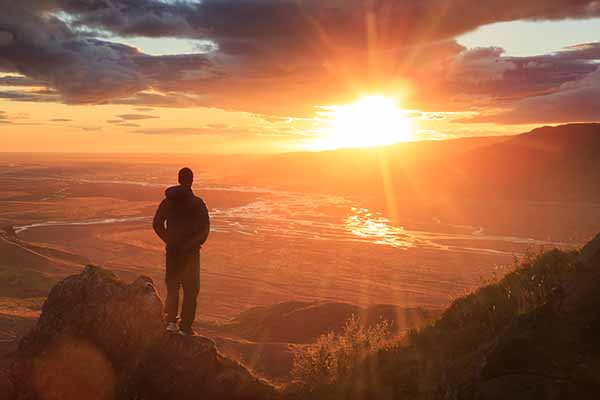
Fit Body: No one is coming to save you. You must save yourself, and my friends, the time is now.
Thank you. I would add to that. I’ve never done this before. Pick up one new habit that’s going to make your life better. That will be the beginning of a new cycle of habits.
I appreciate that stuff. I loved the show. Thank you so much for having me on.
Thank you so much. I appreciated it. Thank you to our show supporters, M&A Strategies and Tower Commercial Real Estate. Thank you for reading. If you liked it, tell your friends. Follow us on Instagram and LinkedIn. The mission of the show is to dig deep into the lives of true leaders so that others can follow, knowing that the path isn’t always easy but the journey is worth it. Enjoy the day and live with passion.
Important Links
- Fit Body Boot Camp
- Dr. Michael Breus – Previous episode
- Atomic Habits
- The Dichotomy of Leadership
- M&A Strategies
- Tower Commercial Real Estate
- Instagram – Vine Collective
- LinkedIn – Vine Collective
